Crowd favourite and playmaker:
Remembering ‘King Richard’ Job
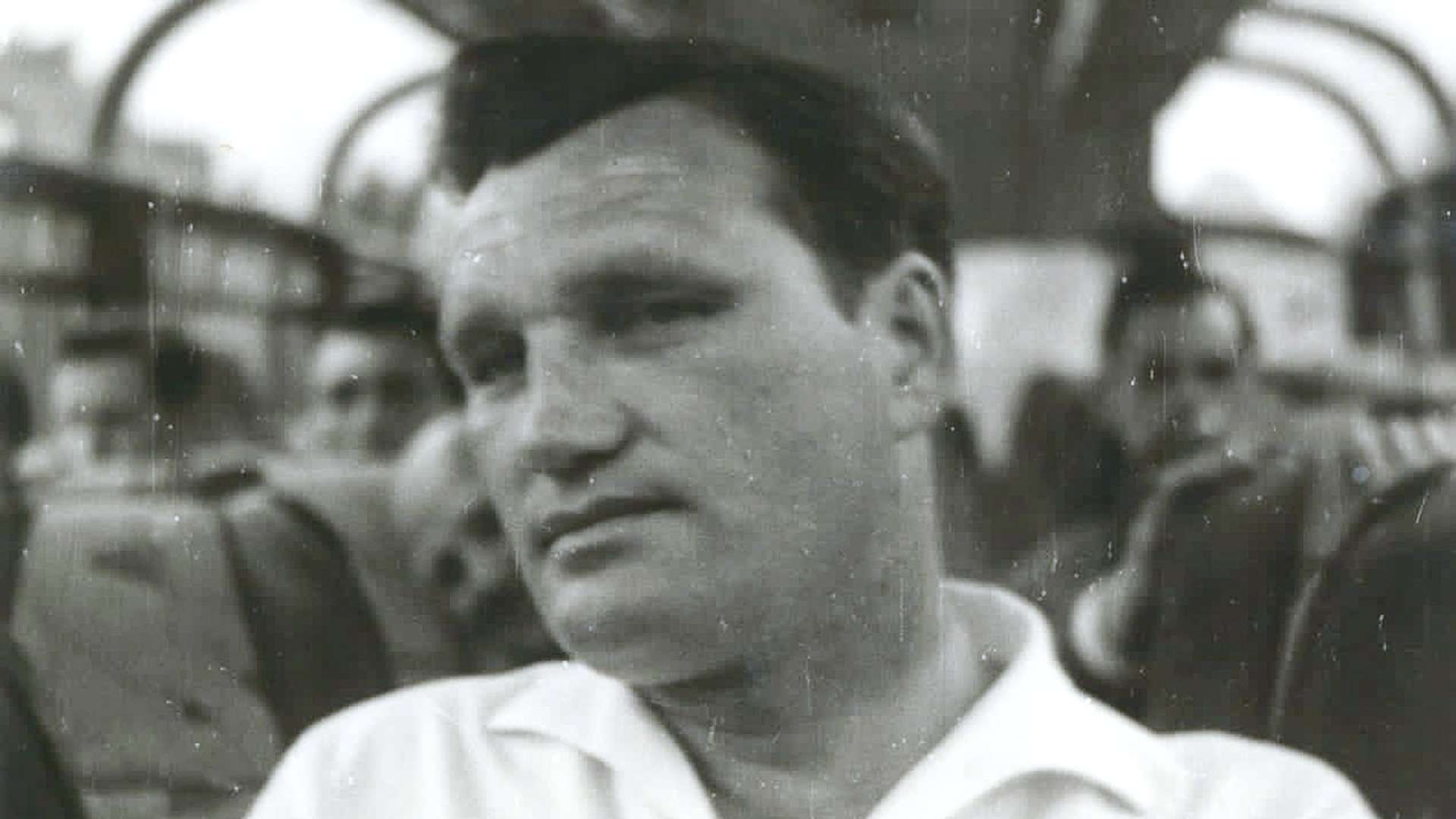
The image of his overhead kick is one of the most famous photos from the early days of the club’s history and he is immortalised with another, less spectacular image on an external wall of the West Stand at the BayArena. Richard Job counts as one of the key personalities of Bayer football in the 1940s and 50s. He would have been 100 years old on 9 March. We remember this Leverkusen football legend on his birthday.
The degree of appreciation for the Leverkusen-born player is evident form the choice of his nickname: The athletic, technically gifted and prolific playmaker in the number 10 shirt was known as King Richard in Leverkusen – probably derived from the interwar Germany international Richard Hofmann, who was called ‘King Richard’ after his hat-trick in a 3-3 draw with England in 1930.
Job’s popularity not only stemmed from his elegance and his strategic abilities, which often enabled him to give his team’s game structure and brilliance. He was a ‘Leverkusen lad’, a down-to earth character without any airs and graces who progressed through all the Bayer 04 youth teams and he won the U17 league title with the club in 1936. The award from the ‘Deutschen Reichsbund für Leibesübungen’ (German Imperial Association for Gymnastics) is in the possession of his son Ralf. In 1986, exactly 50 years after his father won the title, Ralf became a champion of Germany as a player with the Bayer 04 U19 team – under coach Michael Reschke with a 2-0 victory over FC Nürnberg.
Debut in first team at 18
Richard Job also found employment at Bayer in his hometown. He trained to be a typesetter and stayed loyal to the company up to his retirement as a pensioner. The 18-year-old made his debut for the first team before the start of the war in September 1939. The Sportvereinigung Bayer 04 Leverkusen was the successor to the ‘Betriebssportgemeinschaft der I.G. Farbenindustrie AG’. Richard and his brother Hermann were the “football heavyweights of the team” during the war years, as club archivist Walter Scharf described them, and Richard Job was named the “most popular player in the history of Leverkusen football” in 1954.
Matches became intermittent as the Second World War continued. Job was twice taken prisoner as a soldier. One time he escaped and he made his way to Düsseldorf by hitch-hiking. “From there, he walked to Leverkusen,” said Ralf.
Great excitement ahead of two derbies
Following Germany’s surrender in May 1945, football started again relatively quickly in Leverkusen. Richard Job took over as coach temporarily. With Richard as the maestro in midfield of the Sportvereinigung Bayer 04 Leverkusen, the club made the step up to the Rheinbezirksliga I and they became champions in 1948/49.
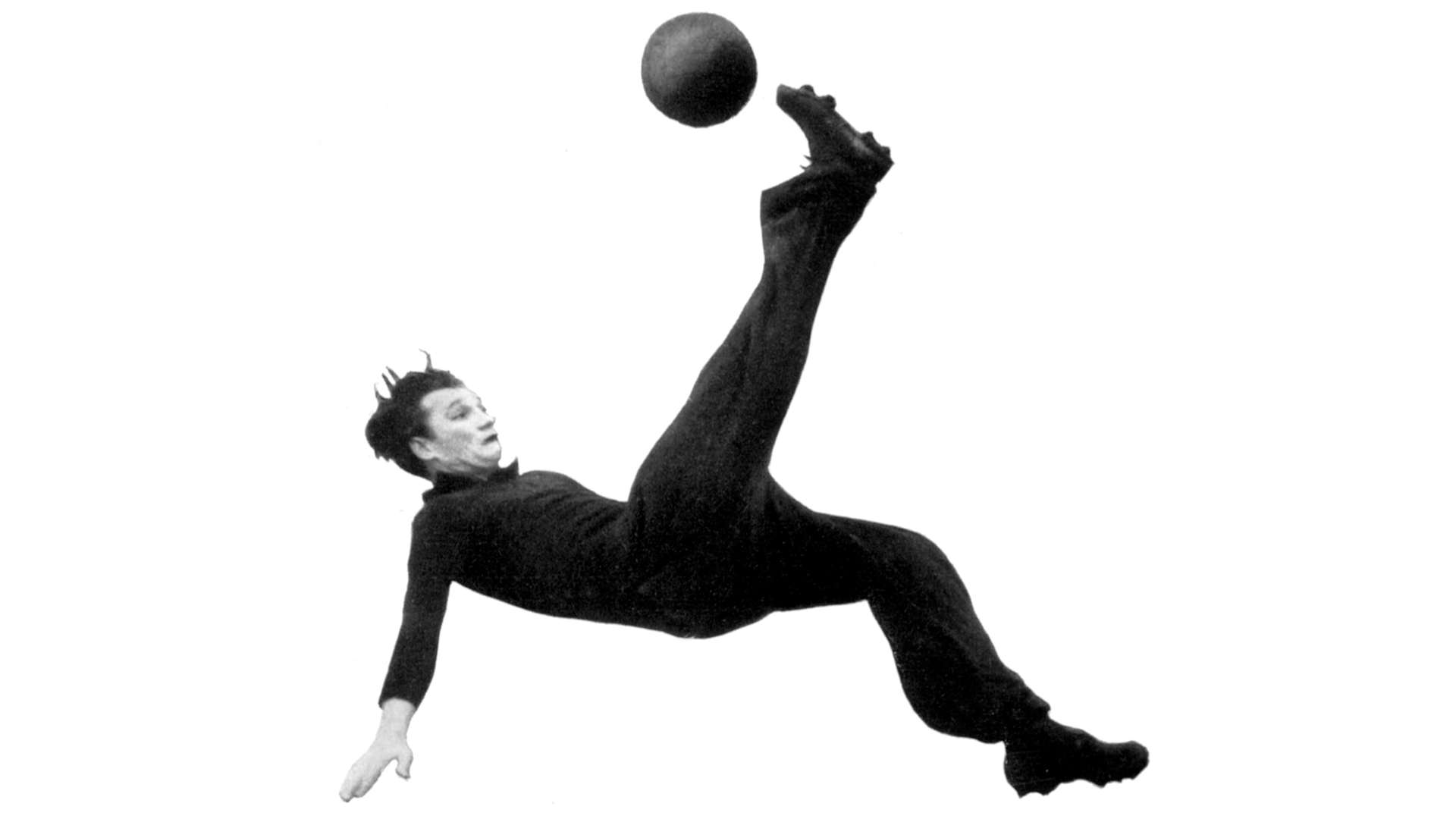

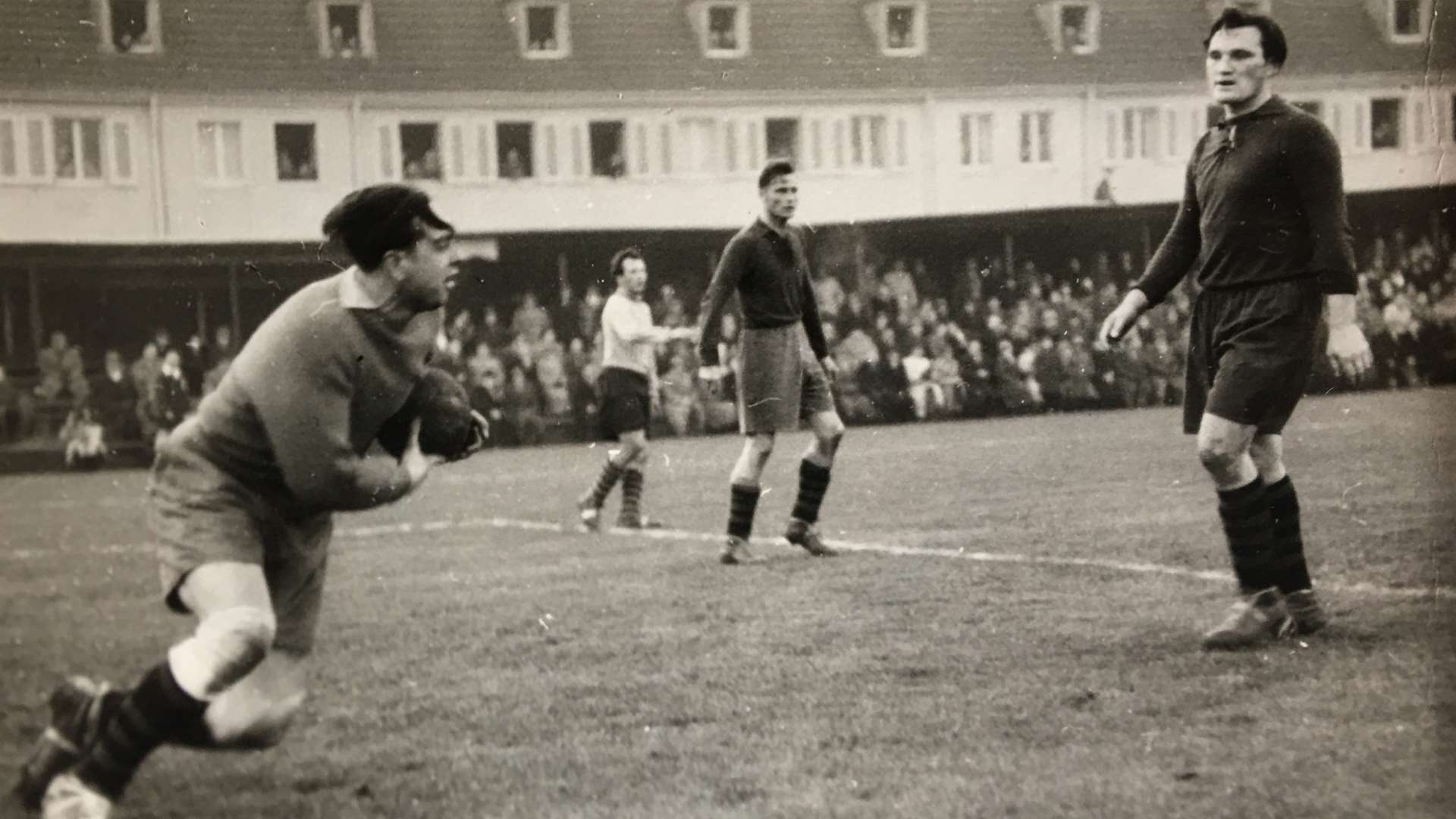
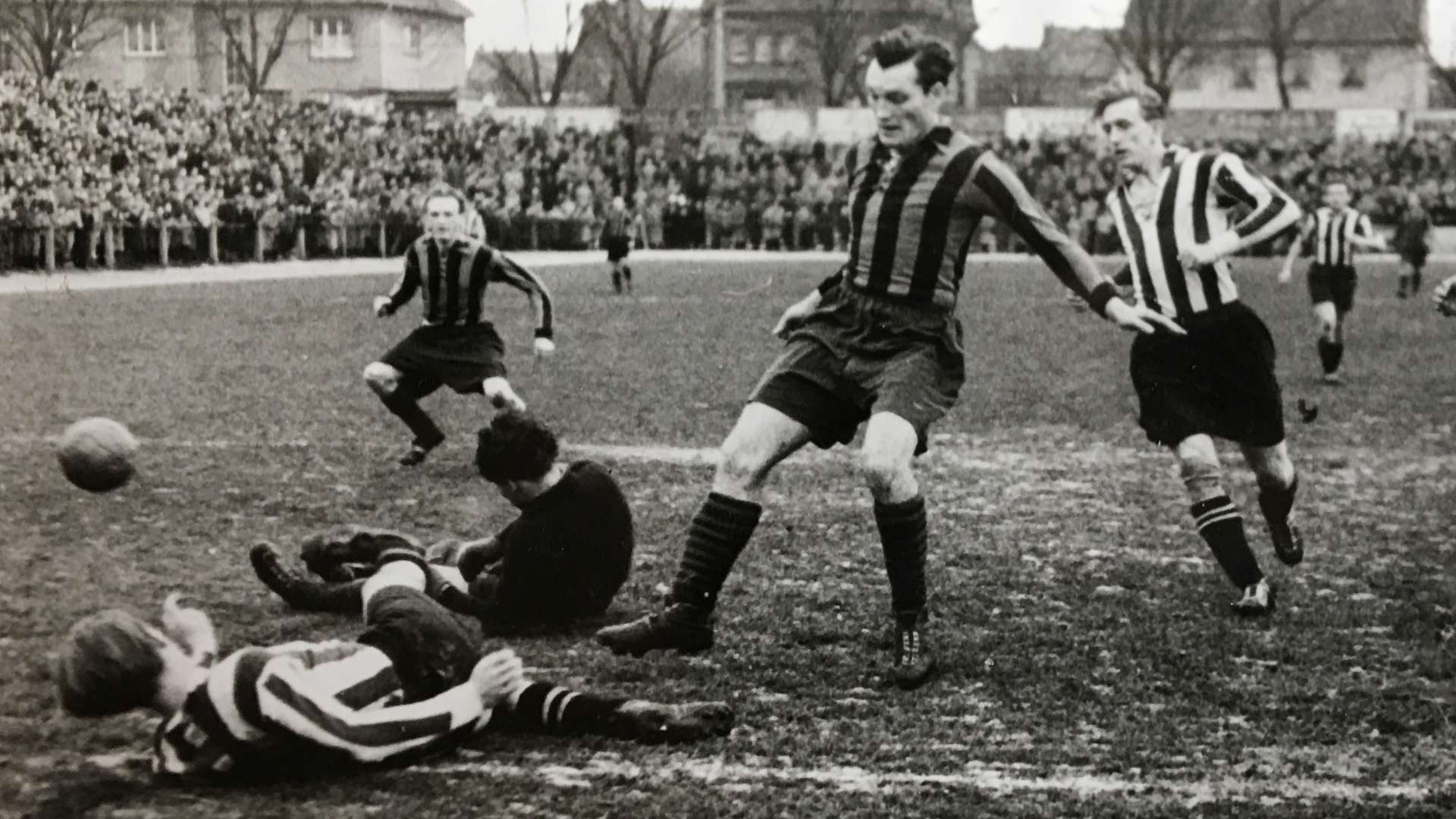
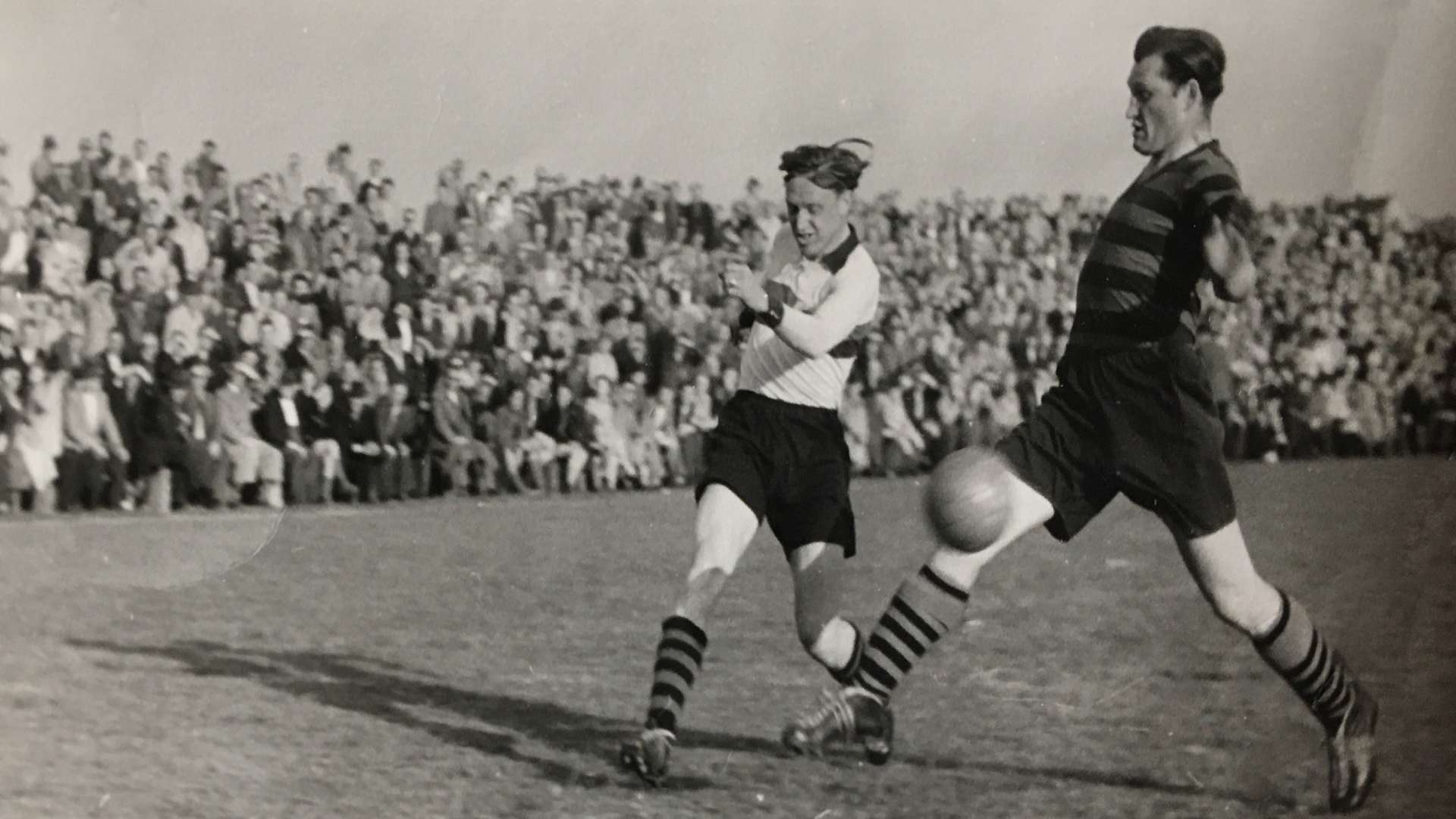
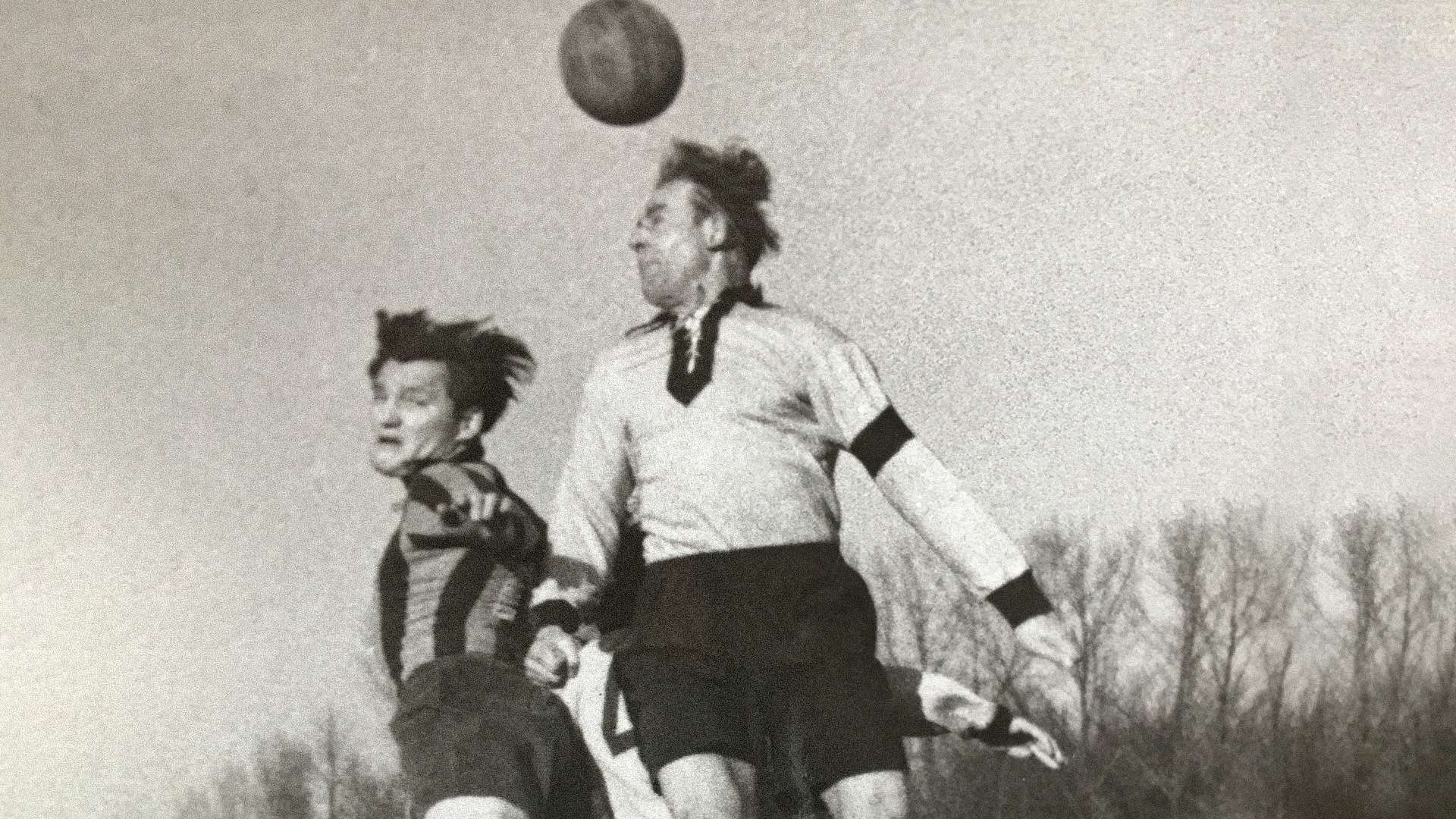
8 May 1949 brought the first big clash with FC Köln, who were champions of the Rheinbezirksliga II. The two legs against the Rhineland neighbours were about promotion to the Oberliga West, back then the top-flight in Germany. Over 5,000 Bayer 04 fans made their way to Cologne to support their team at the Radrennbahn stadium. Richard Job was not fully match fit after having recovered from a knee injury.
Weisweiler or Job?
The derby electrified football fans in and round Leverkusen and Cologne and was the source of headlines in the media ahead of the game. The Cologne-based Volksstimme headline posed the question: “Who will lead their team to victory: Hennes Weisweiler or Richard Job?” Weisweiler, the future immensely successful coach at Borussia Mönchengladbach and FC Köln, was the player-coach at FC and alongside Hans Schäfer, who went on to win the World Cup with Germany in 1954, was the key player for Leverkusen’s opponents. While they were playing, Job and Weisweiler knew each other and both did their coaching badges at the Cologne Sports University under the then head of coaching Sepp Herberger during their playing days.
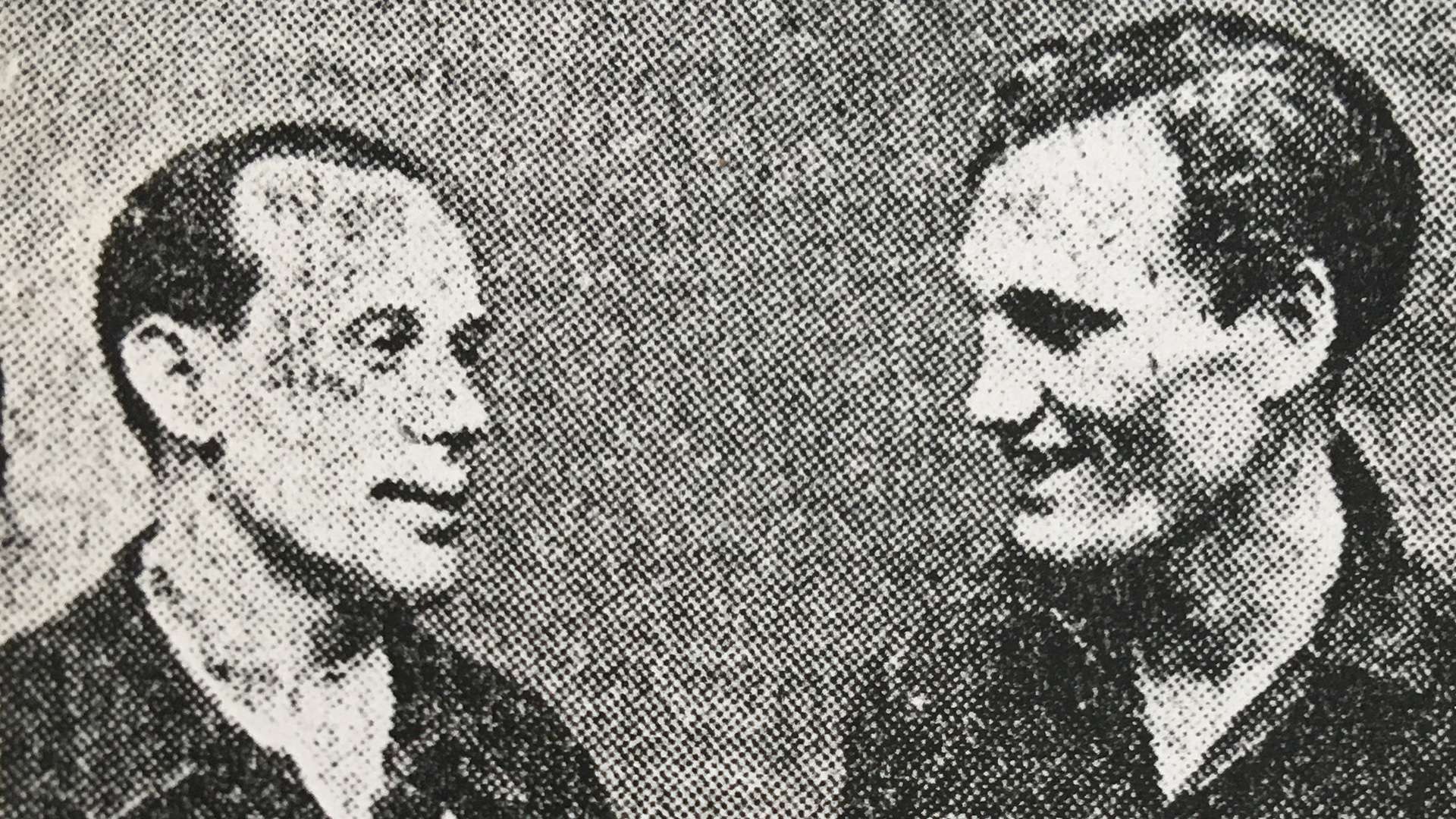
Unfortunately, this match on 8 May was a one-sided affair: The match in Cologne ended ina 2-0 defeat – in front of 22,000 spectators, the Bayer team failed to perform and Job was also bellow par and he met with criticism within his own club. He was forbidden to make contact with FC Köln and suspended by the club. Nerves were raw ahead of the return match in Leverkusen on 15 May 1949. WZ-Sport adopted a dramatic tone two days before the game: “Something has happened in between the two deciders for the Rhine District Championship that has no parallel in the history of football but suddenly struck like lightning out of the blue in the heightened football atmosphere around Cologne cathedral. The bombshell was no less than Richard Job not being able to play for Leverkusen 04 any more.”
Bayer miss out on promotion – Job moves to Wuppertal
The crowd favourite was stunned – and he made his views clear to the WZ: “All accusations against me as well as rumours about me joining FC Köln have no basis in fact. The statement ahead of the Köln game that it would be my last for Bayer, has not even been mentioned by me, so that I once again absolutely reject the criticism in Leverkusen club decision of gross misconduct and behaviour liable to damage the team.” Nevertheless: The return match did not involve King Richard. In front of 14,000 spectators at the Stadtpark, the team coached by Karl Winkler lost the second match 3-1. Job joined first division Vohwinkel 80 for the 1949/50 season.
But the 28-year-old did not take to Wuppertal and he returned to his hometown of Leverkusen after one season. Raymond Schwab was now the coach. And Job, the ‘prodigal son’, proved his worth on his comeback season that he was one of the driving forces in the highly entertaining Bayer team. Together with Theo Kirchberg, captain Hans Frömmel, Paul Wiorek, Heinz Papenhoff and Emil ‘Bubi’ Becks, Richard Job was one of the key players in the side that were top of the table at the halfway stage in 1950 and on 8 April 1951 a 5-2 win against Fortuna Köln secured the long-awaited promotion to the Oberliga West. “The significance of such an outstanding result to our club’s history and the whole city can hardly be measured by us at the moment,” was celebrated by the then club journal.
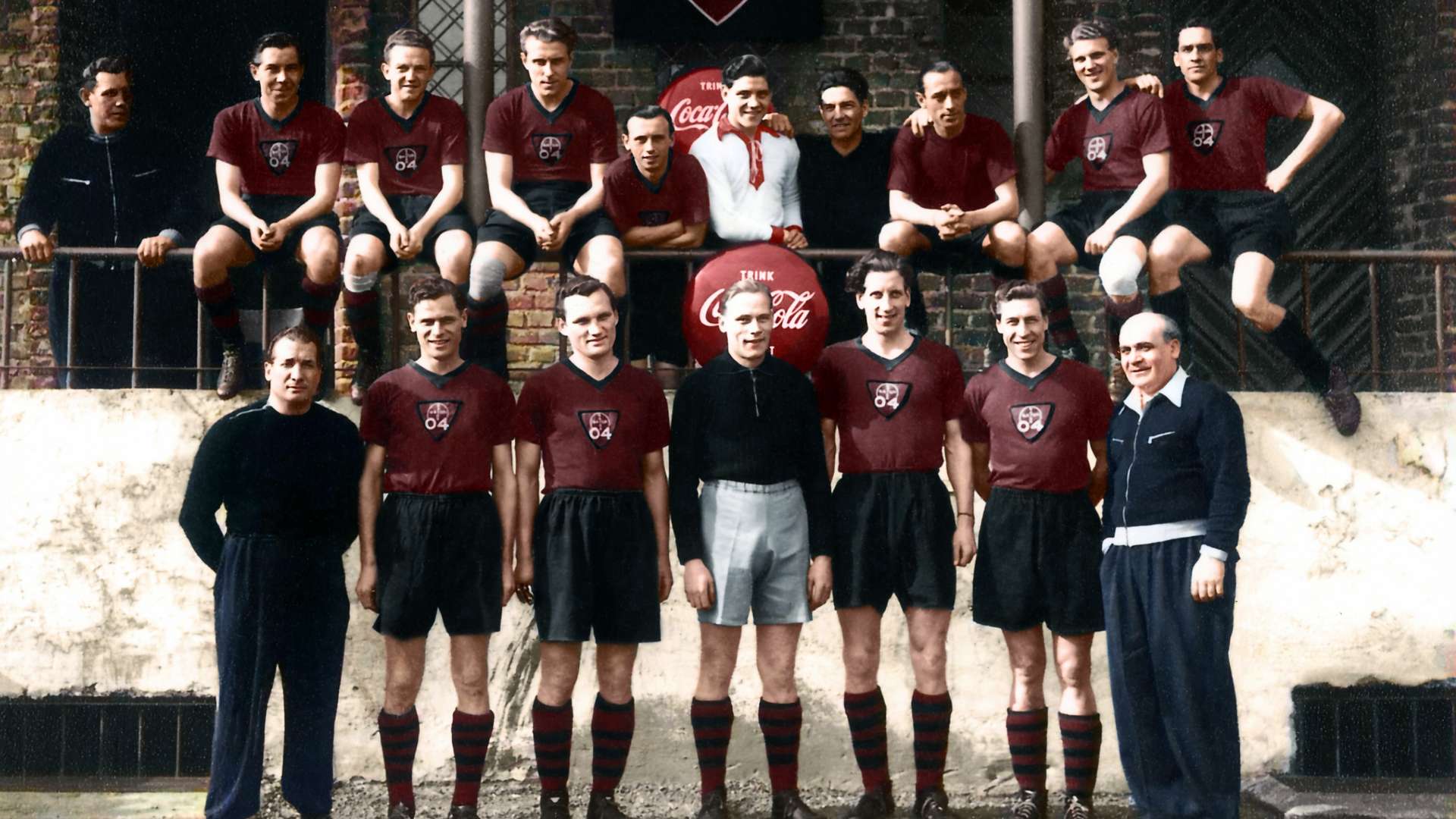
In the headlines again and again
The newly promoted club with playmaker Richard Job had an impressive first season in the Oberliga – with the highlight on 4 November 1951, when the Black and Reds beat FC Köln 2-0 in the derby in front of 35,000 spectators. They finished the season in sixth place at the end of the season. ‘King Richard’ often dominated the headlines in the next two years even though he dropped back as the years went by to play as a sweeper wearing the number five instead of a number ten.
“Strategist Job stops Fortuna” was the headline in kicker after a 2-1 win against Fortuna Düsseldorf in September 1952, where Job “played the holding role with confidence and great precision.” “s the hero of the day,” according to the Kölnische Rundschau after a 2-1 win against Preußen Münster on December 1954. “It almost appeared it only needed the inspiration of the intelligent Job to turn the recently often deeply disappointing Leverkusen into a dangerous instrument.”
And if the star of the team was criticised by the coach, then even neutral journalists saw it as a sort of insult to the monarch. For example, the coach Sepp Kretschmann once bawled out Job “with his loud voice in his unspoiled East Prussian dialect” during a match against Sodingen: “The number has to run more!” The sports editor of the Kölnische Rundschau was up in arms in his article: “Although the number 10 […] was all over the pitch and did his job of setting up shots left and right and, in combination with Cesar, unsettled the Sodingen defence, he received that criticism during the game ! Was that necessary? Anyone who knows Richard Job will know he doesn’t run unnecessarily but instead at the just the right moment. In all the phases of the game, particularly on 80 minutes, he stood firm. Running is not always running.”
It sounds like a plea from a defence lawyer for his client. And the 80th minute produced the key evidence: Job, now almost 33 years old, scored the crucial goal to make it 3-2 for his team.
Job becomes a coach
In his final season in 1954/55, he only made one appearance in a 0-0 draw against Preußen Münster on 31 October 1954. The Kretschmann team had their best Oberliga season to date and just missed out on qualifying for the finals of the German Championship by finishing in third place. Richard Job, who received his DFB certificate as a coach in 1953, ending his playing career at the age of 34 and then he took up a number of coaching jobs in Leverkusen. He also coached TuS Manfort 04, BV Wiesdorf, SV Schlebusch, FC Monheim, VfL Leverkusen, Beuel 06, BV Opladen and the Bayer Reserves.
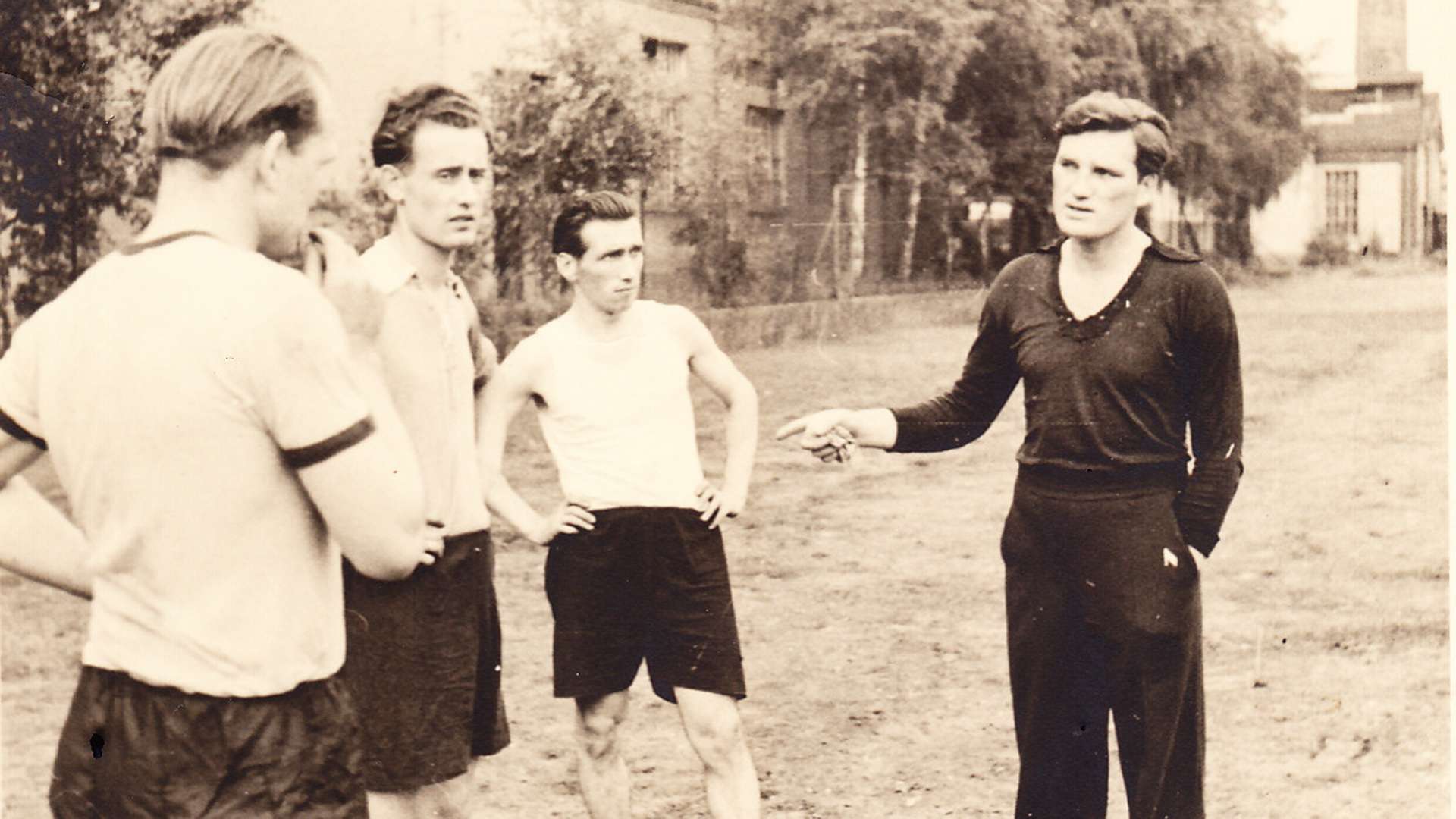

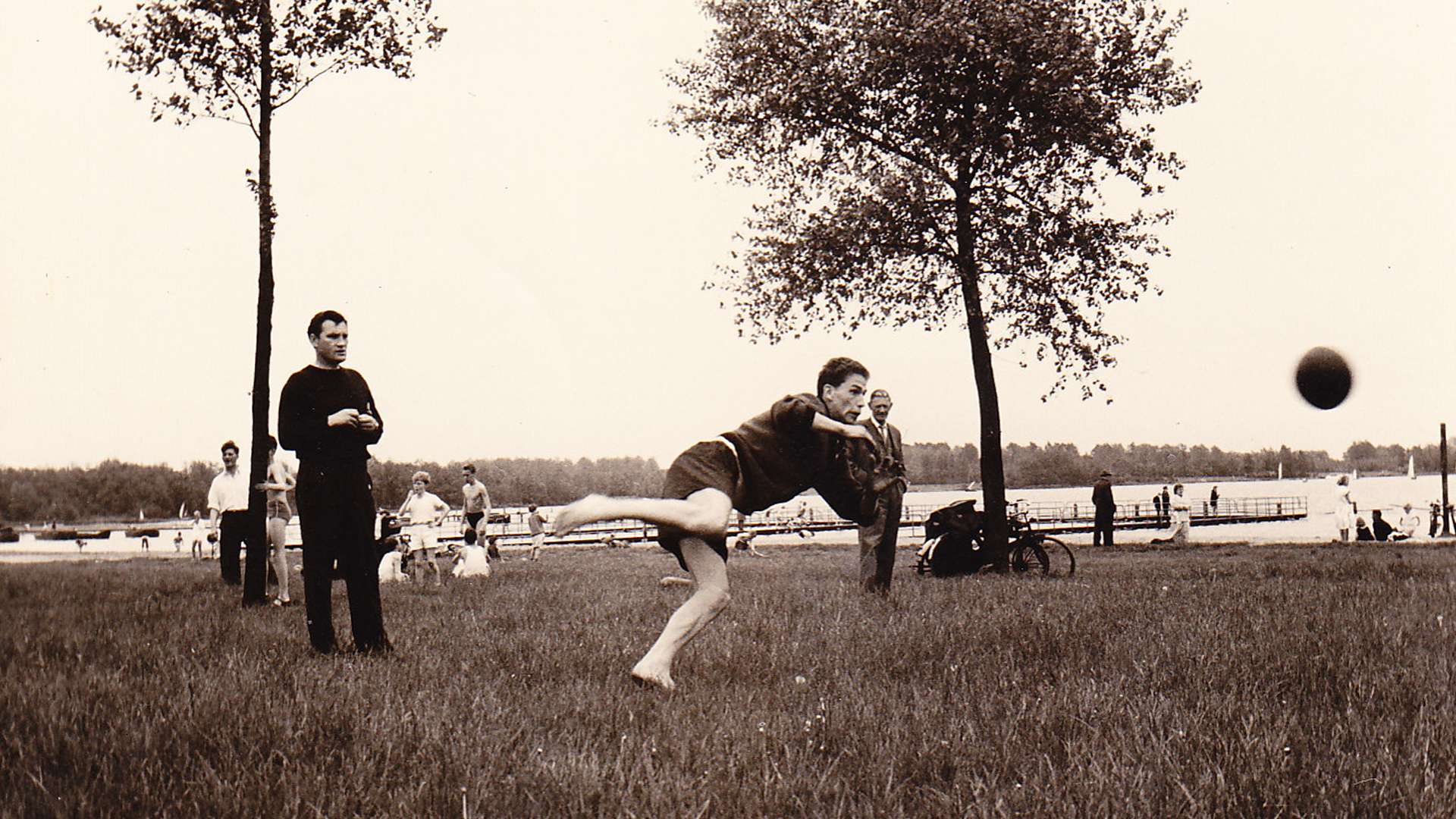
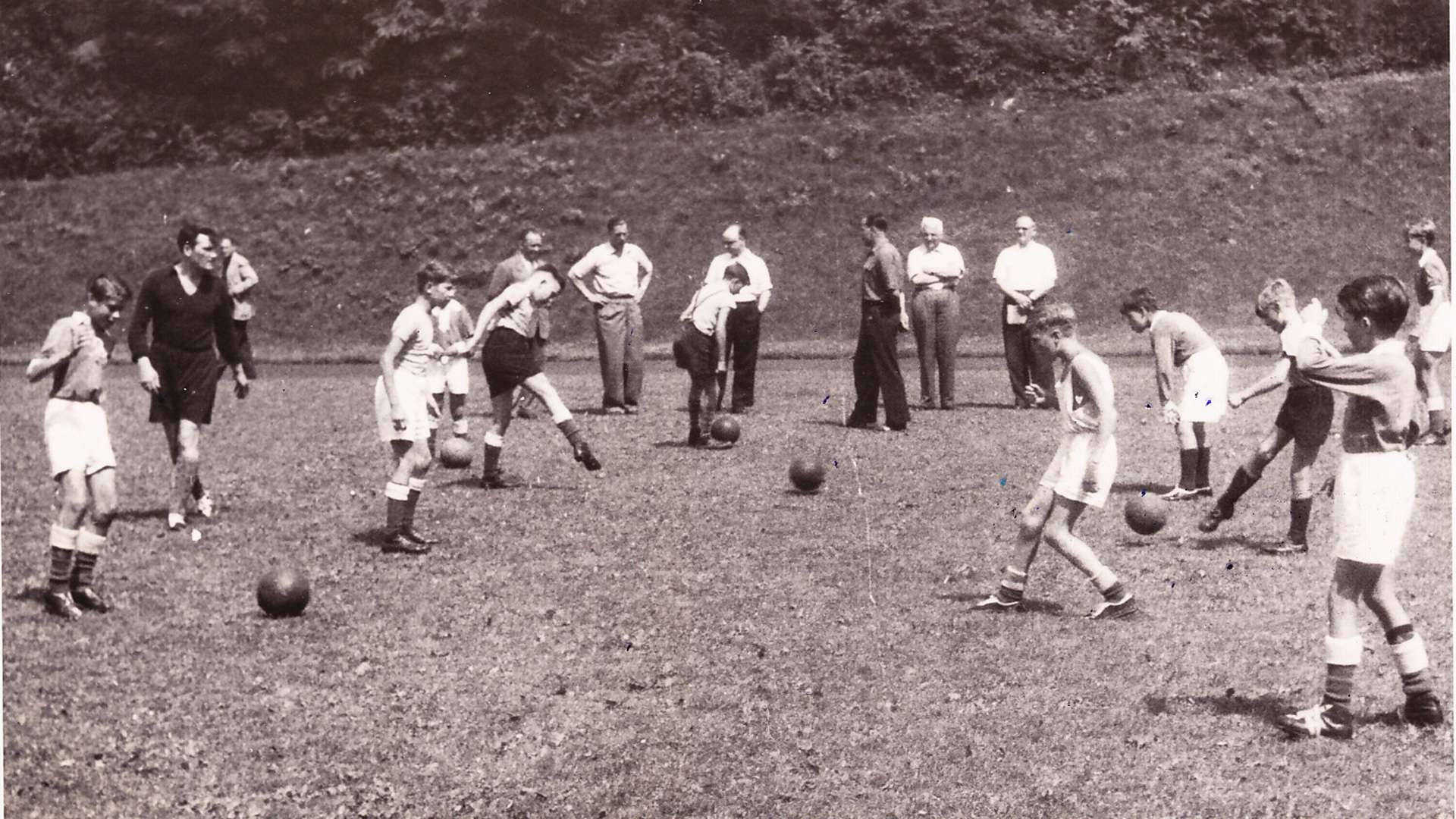
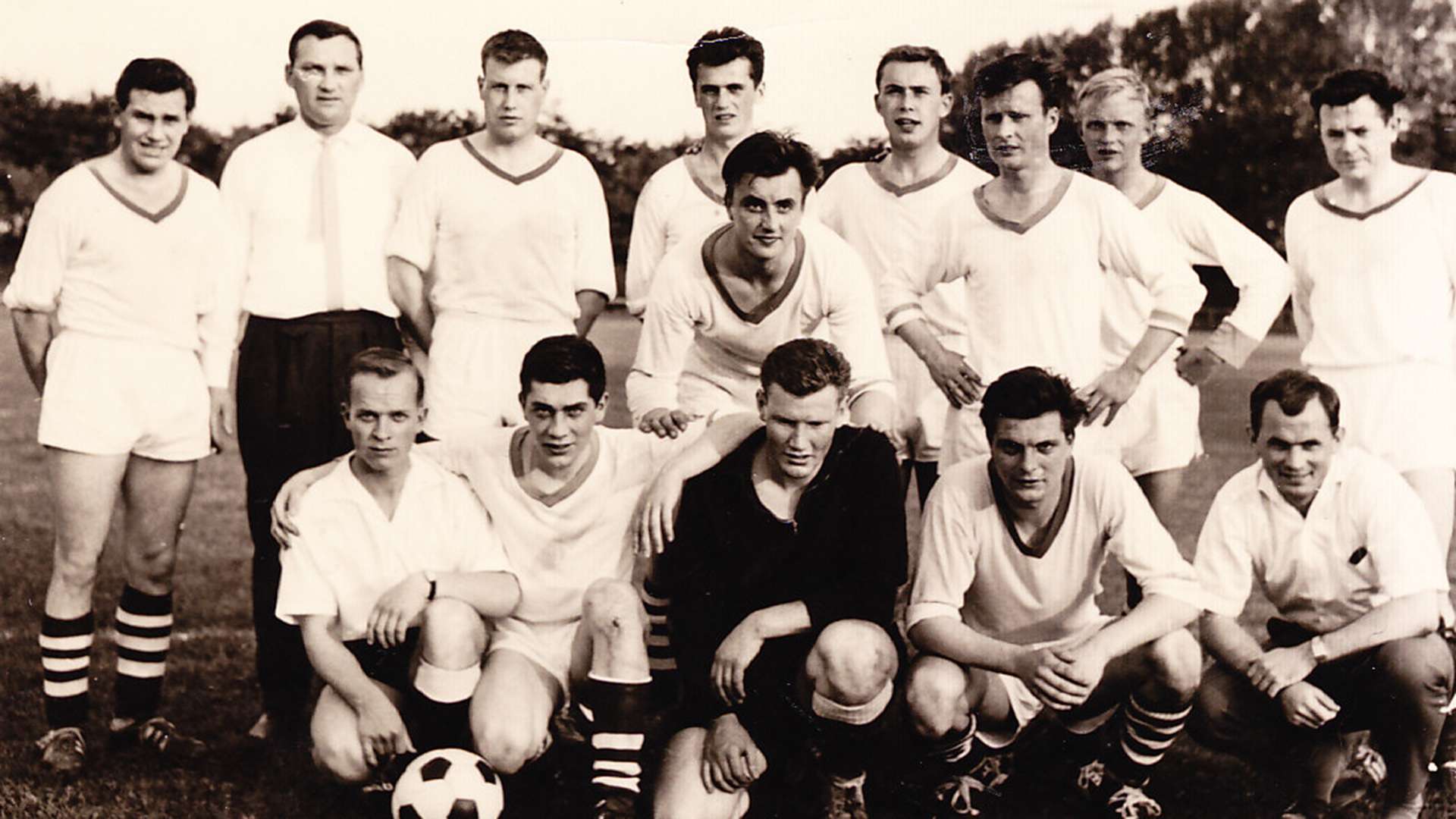
Job continued to work for Bayer AG, and the trained typesetter had an office job in Flittard. “It’s all about football in our family,” said Ralf Job, the older of two sons of the Job couple. Ralf and Carsten both played for Bayer 04 youth teams, and later together at Richrath and VfL Leverkusen. “Of course, my father always watched our games. My mother cooked according to our fixture list and she did the washing too, she was kept really busy,” said Ralf with a smile.
“Here comes King Richard”
There was also a special ritual: Every Sunday morning, Richard Job and his boys went swimming at the indoor pool on Bismarckstraße and afterwards they went to the ‘Kamin’, a pub just a few yards down the road. The pre-lunch drink with old friends and former teammates was sacred to him. Ralf recalled: “People often shouted out when we came in: ‘Here comes King Richard’ and while we drank our lemonade, the ones who’d seen him play whispered to us: ‘Your father, he was a good un.’ One thing above all else was important to us: A wonderful father who was always there for us and he spent lots of time with us.”
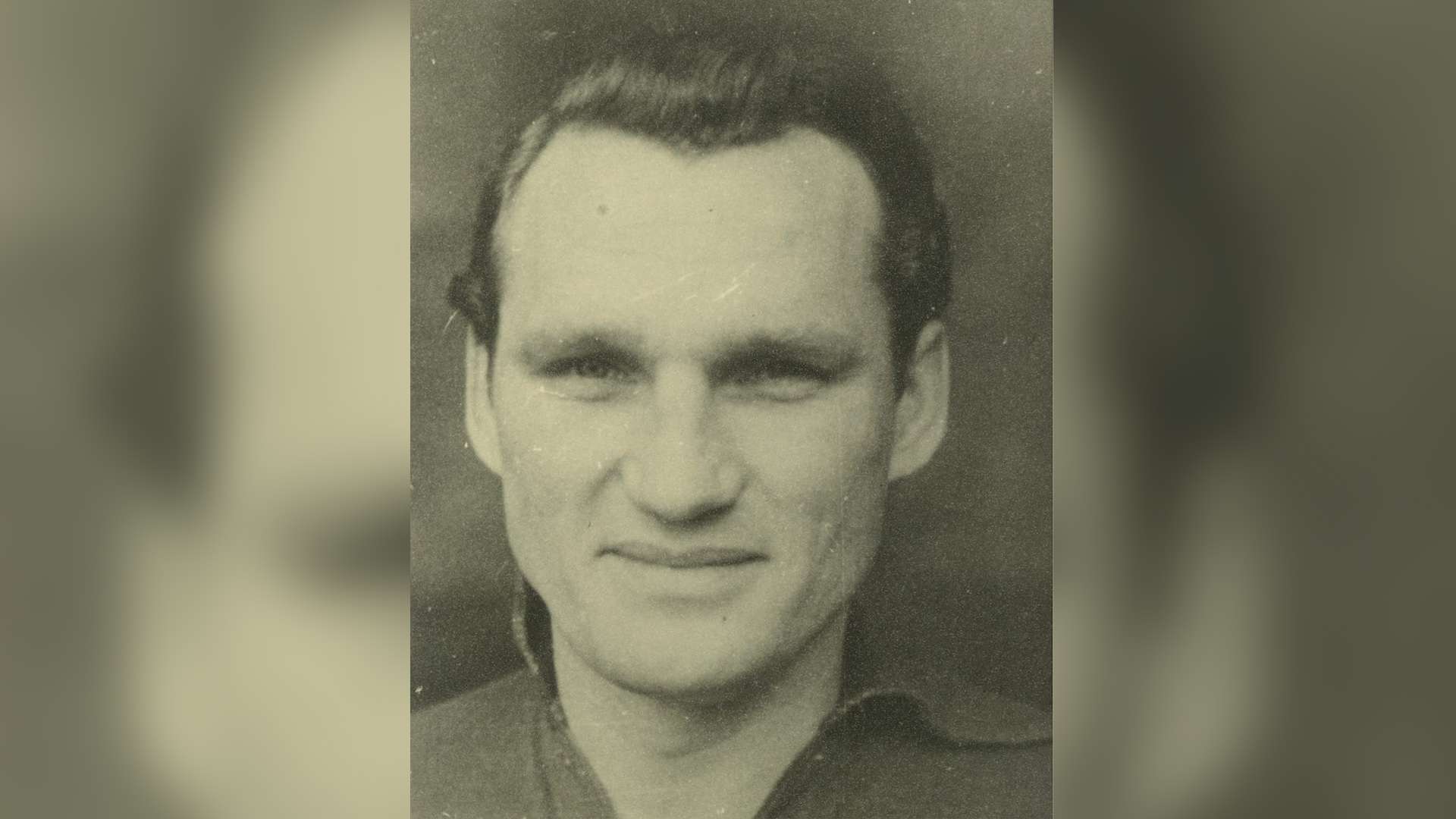
Into old age, Richard Job regularly came to the stadium to watch Werkself home games. He sat in the stands along with many other old heroes from the club’s history like Theo Kirchberg, Fredy Mutz, Günter Haarmann and Friedhelm Renno.
Richard Job passed away at the age of 89 on 27 April 2010. His wife Anneliese and their sons Ralf and Carsten made it a tradition to raise a glass of sekt to him at his grave on his birthday. That will happen on this 9 March too when ‘King Richard’ would have been 100 years old.
